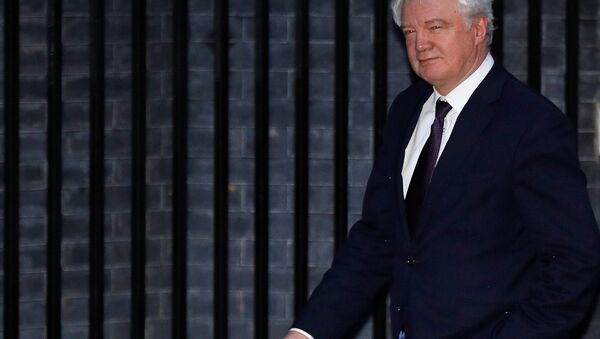During questioning by the cross-party Select Committee for Exiting the European Union on December 6, Mr. Davis responded to Labour Chair Hilary Benn that impact assessments on the automotive, aerospace and financial industries didn't exist.
"You have said there are no impact assessments. You were hoping that, at the October (European) Council, the door would be open to phase two of the negotiations, where the question would be asked 'What does the UK government want?"
"Are you actually telling us that the government hadn't at that point — and still hasn't — undertaken the assessment?" Mr. Benn asked.
David Davis has just admitted that his department have conducted no analysis on the economic impact of Brexit.
— James Melville (@JamesMelville) December 6, 2017
This is gross negligence. Our government are winging it on the biggest issue facing our country in 70 years. An appalling dereliction of duty.pic.twitter.com/vW6fXcnoo9
Davis told the committee he didn't need a formal impact assessment and that the sectoral analysis was evolving.
"I'm not a fan of economic models because they have all proven wrong. When you have a paradigm change — as happened in 2008 with the financial crisis — all the models were wrong," Davis said.
Jonathan Portes, Professor of Economics and Public Policy at Kings College London told Sputnik the government had been trying to avoid facing up to the economic realities created by Britain's exit from the EU.
"It is no surprise to discover that the government has not in fact analysed the impact of Brexit, or of different forms of Brexit on different sectors of the UK economy. The reason is simple, any objective, professional assessment would conclude that, for the vast majority, although not all sectors, the status quo is preferable in terms of economic outcomes."
Economic Impact
In a London School of Economics report published November 2017, official Treasury estimates were cited forecasting a 6.2 percent decline in overall GDP, equivalent to US$5,748 (£4,300) per British household. The authors however were critical of Treasury estimates, saying they were probably overly optimistic in its modelling.
Here's a video of David Davis explicitly mentioning more than 50 #Brexit sectoral analyses.
— British Gov Watch (@BritishGovWatch) December 6, 2017
Today, he has said 'no systematic impact assessments' exist. Either misleading public or wholly incompetent. pic.twitter.com/zamnI8FpLf
In February 2017, auditing firm KMPG published its own analysis of the likely impact and exposure of all the UK's main industries to labor from the European Union. The most dependent industries were food and drink manufacturing at 30 percent, logistics and postal services at 14 percent, hotels and restaurants at 13 percent.
Among the reactions online was Vince Cable, Leader of the Liberal Democrats, who called the revelations less serious than the Conservative Government's decision to leave EU Single Market itself without having first studied the likely impact.
Unbelievably this is less serious than admission #Cabinet decided to leave #CustomsUnion without any assessment at all. Gross negligence. https://t.co/98hYQ5s7hI
— Vince Cable (@vincecable) December 6, 2017
David Davis now admits the UK Gov't has done NO impact assessments for implications of Brexit on sectors of the British economy + did NO formal impact assessment of the effect of leaving the EU customs union before the Cabinet took decision to withdraw! Breathtaking incompetence
— Peter Stefanovic (@PeterStefanovi2) December 6, 2017
David Davis has now told Parliament that the Brexit impact studies 'do not exist' after saying only a few weeks ago that they exist 'in excruciating detail'… pic.twitter.com/TV7XPHaCBE
— Theresa Griffin MEP (@TheresaMEP) December 6, 2017
This exchange between Hilary Benn and David Davis after the Brexit Secretary revealed the Government has not conducted any sector-by-sector Brexit impact assessments is astounding. pic.twitter.com/quXrJ4S2Qc
— Jack Maidment (@jrmaidment) December 6, 2017
Here's David Davis's Statement to the House a month ago. And here's his evidence to the Brexit Select Committee this morning. pic.twitter.com/O81ahJNf7O
— Jo Maugham QC (@JolyonMaugham) December 6, 2017




